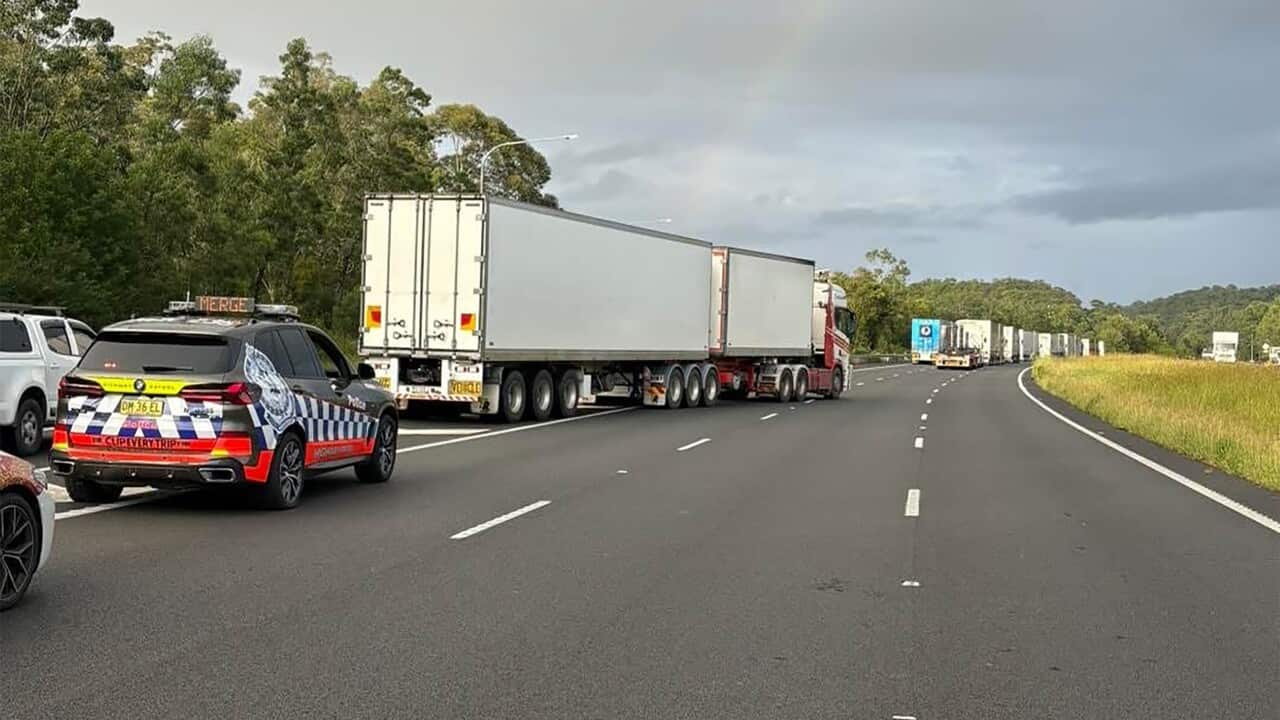Key Points
- The late Karol Matwiejczyk was one of hundreds of Polish children given refuge in India during World War Two.
- Despite India being in the grips of famine at the time, the Maharaja Jam Saheb Digvijay Singhji of Navanagar established a camp for the refugees.
- Karol and his wife Rosemary later emigrated to Australia where they raised a family and operated a vineyard.
When German forces marched into Poland in early 1939, it heralded the start of World War Two. Only 17 days later, the Soviet army invaded from the east.
The situation led to confusion and separation of hundreds of Polish families, their lives forever altered.
In February 1940, Michal Matwiejczyk, a major in the Polish army was defending his country in this two-front war.
However, his own family, consisting of his wife Jadwiga and eight children, were being forcibly taken to a Siberian labour camp deep inside Russia.
One of those children was the late Karol Matwiejczyk.
His wife Rosemary Matwiejczyk told SBS Gujarati that Karol, his siblings and mother travelled for days crammed inside railroad cars "like cattle".
Sadly, their youngest brother, who was just a year old, died during this "brutal" journey, she said.

Polish children being escorted from their homes by Soviet soldiers: Supplied Rosemary Matwiejczyk
A year and a half later, they saw a glimmer of hope after Germany broke its peace treaty with the Russians and attacked. Many Polish prisoners used the distraction of the attack to flee from labour camps.
At the same time, Polish Prime Minister in exile, Wladyslaw Sikorski, called on the world to provide asylum to Polish children.
Maharaja Jam Saheb Digvijaysinhji of Navanagar, a princely state in western India, was among the first to respond to this appeal.
His predecessor, Maharaja Ranjitsinhji, batted for England in an Ashes cricket tour of Australia in year 1897-1898.
Karol's family set out on a perilous 20,000 km journey to India along with 500 other Polish children and their families.
Along the way, already malnourished children and mothers fell sick mostly of typhoid and families became separated.
Jadwiga fell ill with typhoid at Bukhara in modern-day Uzbekistan. Later, one of Karol's older brother joined the Polish army, and two other brothers joined scout camps and orphan camps.
At one stage, Karol, also ill with typhoid, ended up alone in Ashgabat, Turkmenistan.
From Kabul, Afghanistan, the children were escorted on to India by the British Indian army.
Karol used to say the whole journey was like a dream travelling through "amazing" scenic countryside, Rosemary said.

Jadwiga with six of her children including Karol (front, left) at the Bala Chadi in India. Credit: Rosemary Matwiejczyk
The Maharaja set up a camp in Bala Chadi, several kilometres from the capital city of Jamnagar.
Polish teachers were arranged for their education, Jadwiga served as a dietitian for the Polish children and the Maharaja visited the camp many times.
During these visits Maharaja used to tell polish kids "Don't consider yourselves orphans. You are now navanagris (Residents of Navanagar) and I am Bapu, father of all the people of Navanagar so also yours."
Rosemary said the children called him 'Bapu', a term used to express feelings of gratitude and love particularly towards a father or father figure.

Maharaja Digvijaysinhji Ranjitsinhji Jadeja of Nawanagar set up a home away from home for Polish refugees and orphans. Credit: A Little Poland in India
His visits to nearby villages and interactions "planted a seed" of love for nature and agriculture which stayed with him forever, Rosemary said.
At last, the war ended in 1945, and India won its independence from Great Britain in 1948.
Maharaja annexed his state in India and Karol and his family migrated to England, where an elder brother was serving in the Polish army.
Karol studied engineering at university, found a job in London, and married Rosemary.
He never forgot about India or how well Maharaja and the people of India had treated him.

Karol in England. Credit: Rosemary Matwiejczyk
Later in life, Karol bought acreage and started planting different crops.
Rosemary worked in the education sector, providing a stable income while Karol furthered his dream of working in agriculture and establishing a vineyard.

Karol established a vineyard in South Australia. Credit: Rosemary Matwiejczyk

(left to right) Rosemary, Louisa and Isadora with son-in-law Rick who now runs the Linger Longer Vineyard. Credit: Rosemary Matwiejczyk
In Poland, a school is named after Jam Saheb, and he is affectionately remembered as the "Good Maharaja".
Here's how to follow SBS Gujarati on our other digital and social media platforms
SBS Gujarati Website: Bookmark our website www.sbs.com.au/gujarati as a favourite.
SBS Radio App: Download the SBS Audio App from the App Store or Google Play and listen to podcasts and our live radio program.
Listen to news and interviews in Gujarati: Follow SBS Gujarati on Spotify.
Listen to SBS Gujarati every Wednesday and Friday at 2pm on SBSPopDesi, 4pm on SBSRadio2.








